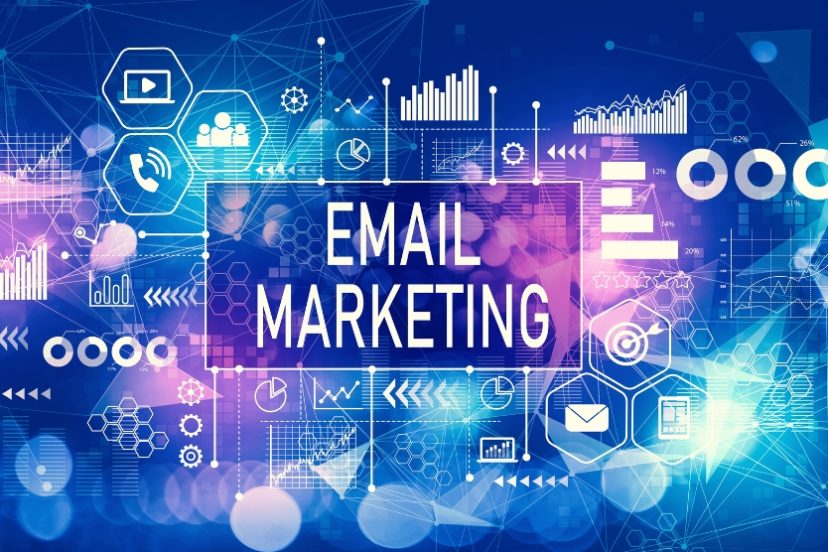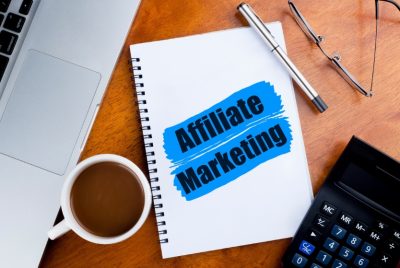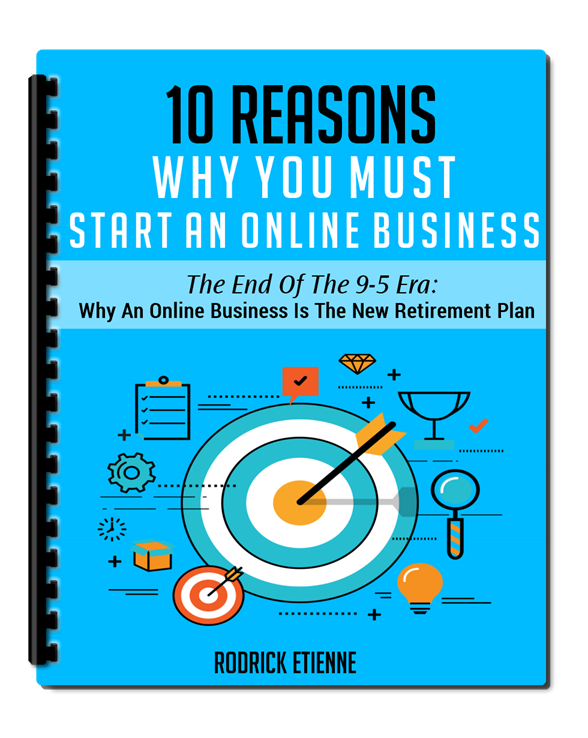Entrepreneurs and business owners understand that great email marketing isn’t about blasting promotions—it’s about building trust,…
10 Reasons Email Marketing Is The Growth Engine Of Successful Businesses

When it comes to building and scaling a business, one channel consistently outperforms the rest: email marketing.
Unlike social media platforms or paid ads, email marketing gives entrepreneurs and business owners complete ownership over their audience.
You control the list, the message, and the timing. The return on investment (ROI) is staggering—often averaging $36 for every $1 spent.
Yet despite these powerful results, many businesses underutilize this channel or treat it as an afterthought.
In this article, I’ll break down 10 compelling reasons why email marketing is the growth engine behind successful businesses.
If you’re serious about scaling your brand, nurturing loyal customers, and boosting sales, this is the one marketing strategy you can’t afford to ignore.
1)) Email Marketing Builds Direct Relationships With Your Audience
At the heart of every successful business is a strong relationship with its customers.
Social media algorithms and search engines can stand between you and your audience, but with email marketing, you bypass those gatekeepers.
When someone subscribes to your list, they’re inviting you into their inbox—a personal space where trust is built.
Direct communication means your message doesn’t get buried under a sea of competitors.
Instead, your emails can consistently nurture prospects, educate them, and position your business as the go-to authority.
Over time, subscribers begin to associate your brand with solutions and reliability.
Tips for Strengthening Relationships Through Email:
- Personalize subject lines and greetings (use names when possible).
- Share behind-the-scenes stories to humanize your brand.
- Send helpful resources before pitching offers.
- Use surveys or polls to involve subscribers in decisions.
When your emails focus on building value instead of just selling, your audience will look forward to hearing from you.
2)) It’s the Highest ROI Marketing Channel
Few marketing strategies can touch email when it comes to ROI. Industry studies show businesses earn an average of $36 to $42 for every dollar invested in email campaigns.
That’s far higher than social media ads, influencer partnerships, or SEO.
Why is the return so high?
Simple: email subscribers have already shown interest in your brand by opting in.
You’re speaking directly to a warm audience who is more likely to convert.
Add automation and segmentation into the mix, and suddenly you’re delivering highly targeted messages that generate consistent revenue around the clock.
Checklist for Maximizing Email ROI:
- Segment lists by behavior (buyers, non-buyers, cart abandoners, etc.).
- Automate sequences for onboarding, upsells, and win-backs.
- A/B test subject lines and CTAs to increase open and click rates.
- Regularly clean your list to remove inactive subscribers.
Investing in email marketing doesn’t just drive sales—it compounds over time.
3)) Email Marketing Nurtures Leads Automatically
Imagine being able to engage with thousands of prospects, answer their objections, and move them toward a purchase without manually reaching out.
That’s exactly what email automation allows you to do.
With tools like autoresponders and drip sequences, you can guide new leads through a structured journey.
From the moment they sign up, your emails can introduce your brand, share your best content, highlight case studies, and eventually pitch your products or services.
All of this happens automatically while you focus on running your business.
Example Lead Nurture Sequence:
- Welcome Email: Introduce your brand and set expectations.
- Value Email: Share a free resource or educational content.
- Trust Email: Showcase testimonials or success stories.
- Offer Email: Present your core product or service.
- Reminder Email: Follow up with urgency or scarcity.
When done correctly, automated nurturing not only saves time but also boosts conversion rates dramatically.
4)) It Keeps Your Brand Top of Mind
Let’s face it—customers are busy. Even if they love what you offer, they can easily forget about you.
Email marketing solves this problem by keeping your business visible and relevant.
By showing up in their inbox on a consistent schedule, you remind subscribers that you exist and that you’re here to help.
Over time, this consistent presence builds familiarity, and familiarity breeds trust.
When the need arises for your product or service, you’re the first business they think of.
Ideas for Staying Top of Mind:
- Weekly newsletters with curated tips or industry news.
- Monthly updates featuring customer success stories.
- Seasonal promotions that tie into holidays or trends.
- Exclusive subscriber-only content to increase loyalty.
Your goal is not to overwhelm but to provide just enough touchpoints to stay relevant and valuable.
5)) Email Segmentation Delivers Personalization At Scale
One-size-fits-all marketing is outdated. Customers expect personalization, and email segmentation makes it possible to deliver tailored messages at scale.
Instead of blasting the same email to your entire list, segmentation allows you to group subscribers by demographics, interests, behavior, or purchase history.
For example, a customer who just bought a beginner product should receive different follow-ups than someone considering your premium offer.
By tailoring messages, you increase engagement and reduce unsubscribes.
Best Practices for Segmentation:
- Segment by purchase stage: prospects, first-time buyers, repeat customers.
- Segment by engagement: active readers vs. dormant subscribers.
- Segment by demographics: age, location, or profession.
- Segment by interest: based on clicks or downloads.
Personalization makes subscribers feel like you understand their needs—and that’s what builds loyalty.
6)) It’s a Cost-Effective Growth Strategy
Growing a business often requires spending money on ads, content, and outreach.
While those can work, they can also drain your budget. Email marketing is one of the most cost-effective strategies available.
With affordable tools, you can reach thousands of people at once without skyrocketing costs.
Unlike paid advertising, where expenses rise with every click or impression, email allows you to communicate repeatedly at little to no extra cost.
Resources to Keep Costs Low:
- Free or low-cost tools like MailerLite, ConvertKit, or Mailchimp.
- Reusable templates for newsletters and promotions.
- Automated workflows to reduce manual labor.
- Evergreen sequences that generate sales long-term.
For small businesses and startups, this cost-efficiency makes email marketing a no-brainer.
7)) It Drives Repeat Business and Customer Retention
Acquiring new customers is expensive. Studies show it can cost five times more to acquire a new customer than to retain an existing one.
Email marketing helps you maximize lifetime value by encouraging repeat purchases and building loyalty.
Through post-purchase follow-ups, loyalty programs, and special offers, you can keep customers engaged long after their first transaction.
These ongoing interactions increase the chances of upselling, cross-selling, and referrals.
Email Retention Hacks:
- Send “thank you” emails after every purchase.
- Create a loyalty sequence with rewards for repeat buyers.
- Offer exclusive discounts or early access to products.
- Share educational content that helps them get the most from their purchase.
Retention-driven email marketing turns one-time buyers into lifelong customers.
8)) It Provides Actionable Data and Insights
Unlike traditional marketing, email campaigns give you measurable results in real time.
Open rates, click-through rates, conversion rates, and unsubscribe data tell you exactly how your audience responds.
This data allows you to refine your strategy continuously. If a subject line underperforms, you can test a new one.
If certain links get more clicks, you can create more content around those topics.
Over time, your email campaigns become sharper and more profitable.
Metrics Every Business Should Track:
- Open Rate: How compelling are your subject lines?
- Click-Through Rate: Are people engaging with your content?
- Conversion Rate: Are your offers resonating?
- Unsubscribe Rate: Are you sending too often or missing relevance?
By analyzing this data, you don’t just send emails—you optimize growth.
9)) It’s Adaptable Across Every Industry
From e-commerce to consulting, real estate to SaaS, email marketing works across industries.
Why?
Because it’s based on universal human behavior. Everyone checks their inbox, and businesses that leverage that habit can connect with their audience in meaningful ways.
The adaptability of email means you can customize campaigns to fit your unique goals.
Whether you want to drive online sales, book consultations, or grow brand awareness, email can be tailored to deliver results.
Examples By Industry:
- E-commerce: Product launches, abandoned cart recovery, flash sales.
- Consulting: Case studies, free training, booking reminders.
- Local Businesses: Seasonal promotions, event announcements, loyalty discounts.
- SaaS: Onboarding tutorials, feature updates, renewal reminders.
No matter your niche, email is a tool that can be molded to serve your business objectives.
10)) It Future-Proofs Your Business
Finally, email marketing gives you independence from ever-changing platforms and algorithms.
Social networks rise and fall. Search engine rankings fluctuate. Paid ad costs continue to climb.
But an email list is an asset you own.
When you build a list, you’re future-proofing your business. Regardless of industry changes, new competitors, or shifts in online behavior, your email subscribers remain your direct line to sales and growth.
It’s insurance for the long-term sustainability of your brand.
Future-Proofing Checklist:
- Prioritize growing your email list above follower counts.
- Regularly back up your subscriber database.
- Offer valuable lead magnets to attract quality subscribers.
- Treat your list as your most valuable marketing asset.
Successful businesses don’t rent their audience—they own it. That’s why email marketing isn’t just a channel; it’s the foundation of lasting growth.
Conclusion
Email marketing has stood the test of time, and for good reason. It builds direct relationships, delivers unmatched ROI, nurtures leads automatically, and keeps your brand top of mind.
With segmentation, automation, and cost-effectiveness, it drives repeat business while giving you measurable insights.
Most importantly, it gives you control over your audience—something no other platform guarantees.
Email marketing is not optional if you’re an entrepreneur or business owner serious about growth.
It’s the engine that powers sustainable, scalable success. The sooner you prioritize building and leveraging your list, the faster you’ll see lasting results.





